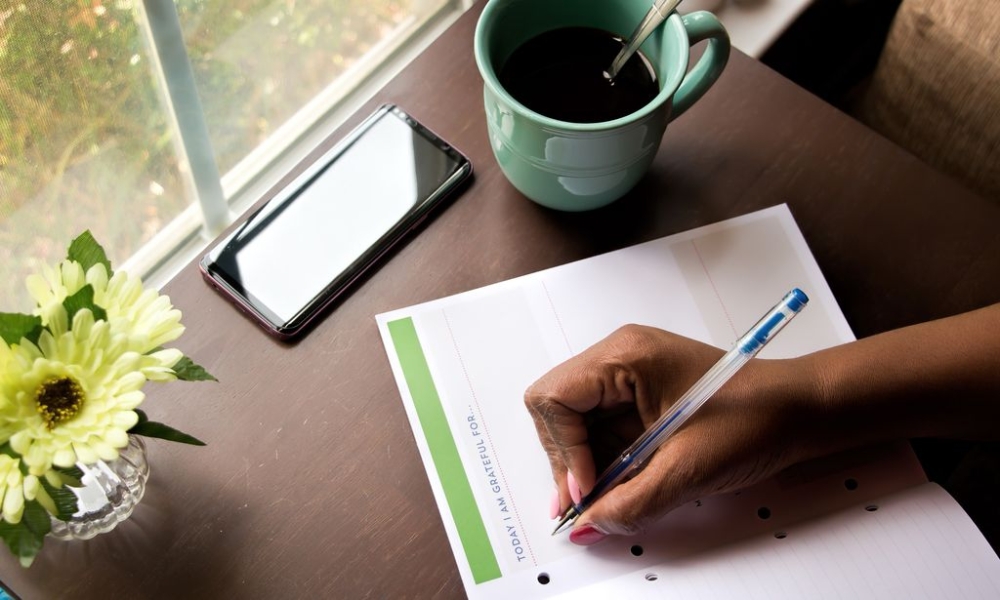NOV 13 — What can you do to improve your day-to-day well-being? Sometimes, simple things within everyone’s reach can be beneficial to mental health, like writing. In fact, according to one expert, a pen, a sheet of paper and six minutes could be all it takes to improve your day and your well-being.
As an adult in the digital age, writing a diary might seem like a throwback from another era. But this age-old ritual can be a useful way of getting through certain days. Alison Jones, a writing coach and editor, recommends writing freely for six minutes every day. “Set a timer for six minutes, ask yourself a question, and write in response to that with a pen or pencil on a scruffy pad of paper without stopping,” she tells Stylist magazine. The aim is to externalise all the emotions of the day, and to take a step back.
The expert recommends writing in a pad or jotter or on a blank sheet of paper, rather than in your favorite notebook. The aim is not to write something pretty or perfect. The whole point of the exercise, she explains, is to embrace “messiness and honesty.” This exercise should enable you to write freely without restraint or self-censorship. And even for computer fanatics, keyboards should be avoided. “This is about hand/brain connection; the last thing you need is a spell check correcting you or a notification popping up to distract you,” she tells Stylist.
This technique echoes the concept of “journaling,” a trend seen earlier this year. Journaling involves putting thoughts and feelings down on paper every day, at any time. This habit can become a mental refuge for those who need it, and an effective way to help people better understand their emotions.
Letting your subconscious do the talking has many virtues. Not only can it bring order to your thoughts, but it can also help you to take a step back from negative emotions. For insomniacs, six minutes of daily writing could even bring some relief. “If you can’t sleep, it can transform your anxiety into insights and action plans,” the writing coach explains. When you’re feeling overwhelmed, this little creative and exploratory bubble offers a moment of calm and quiet all to yourself. It can help you to “reconnect with your breath and senses,” the expert says.
Research from the University of Rochester has previously demonstrated that journaling may help, among other things, to manage stress, reduce anxiety and cope with depression. It has also been shown that keeping a daily gratitude journal can improve sleep quality and mood, strengthen relationships with others and reduce symptoms of physical pain. — ETX Studio






















